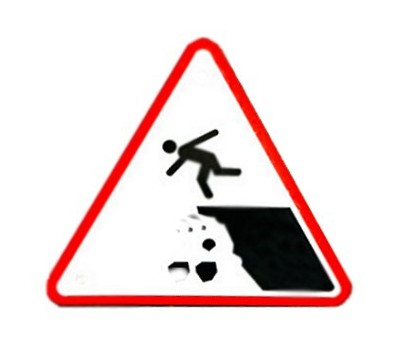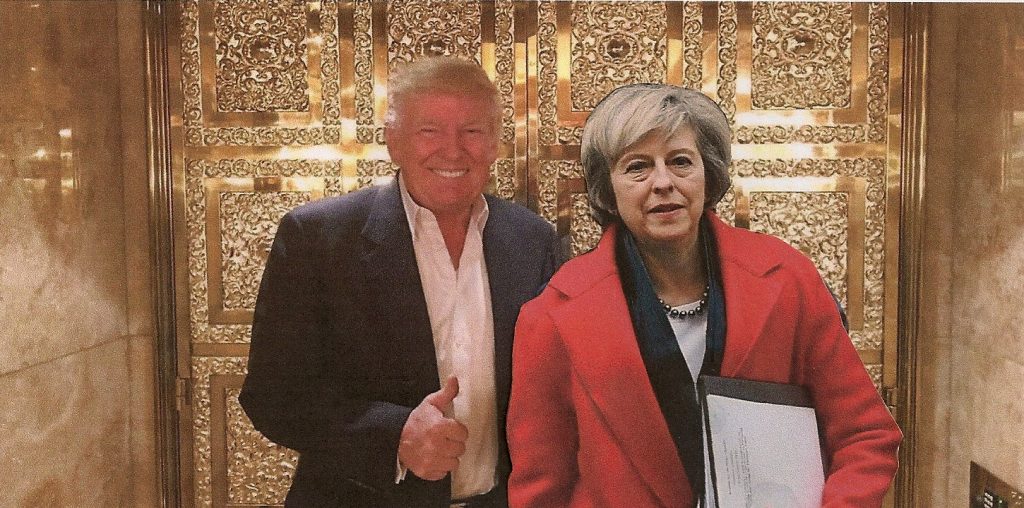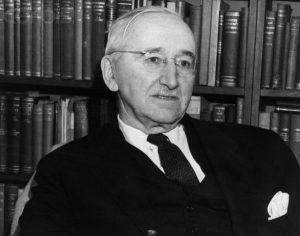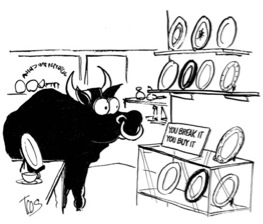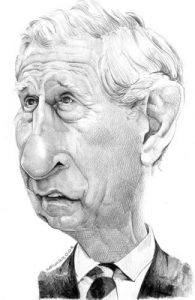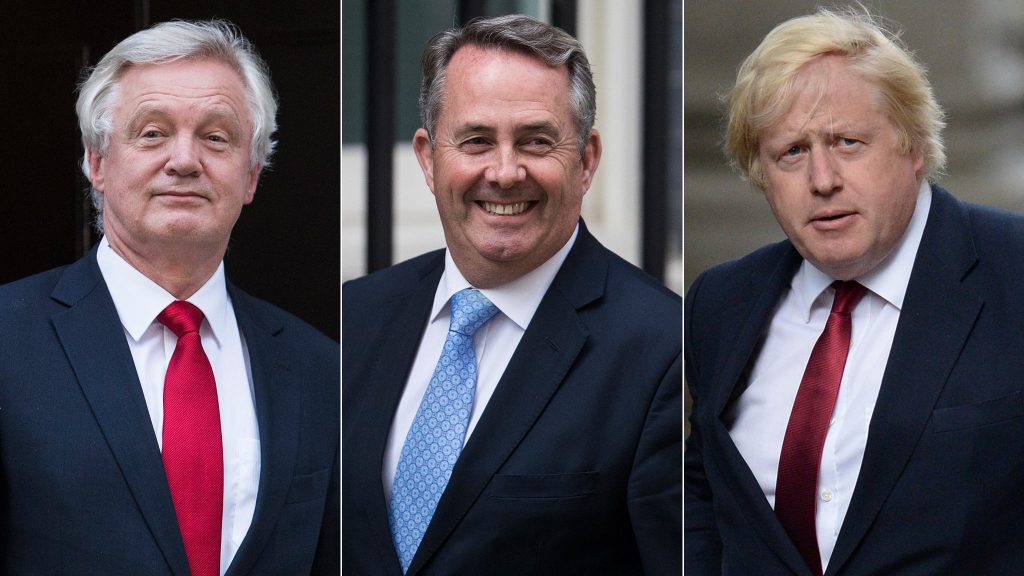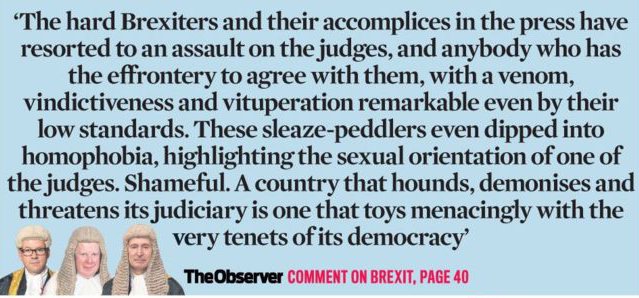My early-morning reading yesterday came from two very different sources. Firstly, I checked my Twitter feed, which included comments about the media coverage of Theresa May’s calling of a snap general election. Then, I continued my read through the latest volume of Alan Bennett’s diaries, entitled Keeping On Keeping On. It brought into start relief two very different aspects of human nature: hatred and humanity.
Hatred
On Tuesday, May spoke a transparent lie that she called the election because Westminster was making things too difficult for her to lead EU exit negotiations. This lie encouraged the usual suspects in the media and morphed into something akin to fascism. Britain’s chief daily harbinger of hate, the Daily Mail, turned this into the headline “Crush the Saboteurs”. The saboteurs, in this case, are those who disagree with the Mail’s views favouring the most extreme and economically-damaging departure from the EU. Any dissent is treason.
Anyone who knows any history can see both historic and current resonances. “Stability”, a word much in vogue with May yesterday, is the last refuge of every tyrant, despot and tin-pot dictator down the ages. It’s easy to make a list of such autocrats, but a topical example is shown below. May’s words could (with a little adaptation) have been spoken by President Erdogan of Turkey as justification for his referendum to secure an autocratic power grab for himself.
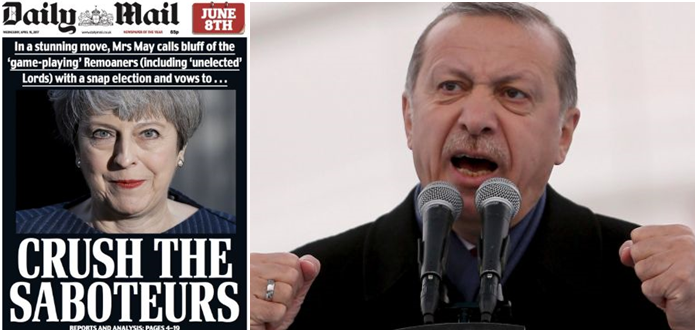
Let’s turn to the other main media suspect, the Sun. Those with attention spans longer than a gnat’s will recall that it’s only nine months since much-admired MP Jo Cox was murdered in the street by a right-wing fanatic. His barbaric act was no doubt spurred on, and legitimised in his own mind, by the vile xenophobic outpourings of many of those in the Leave camp during the referendum campaign. And yet now, a few months later, Rupert Murdoch’s scandal-rag is talking of “killing off” and “murdering” Labour MPs. And, in his bid to grab full control of Sky, Murdoch asserts he is a “fit and proper” person. Not in my book, sunshine.
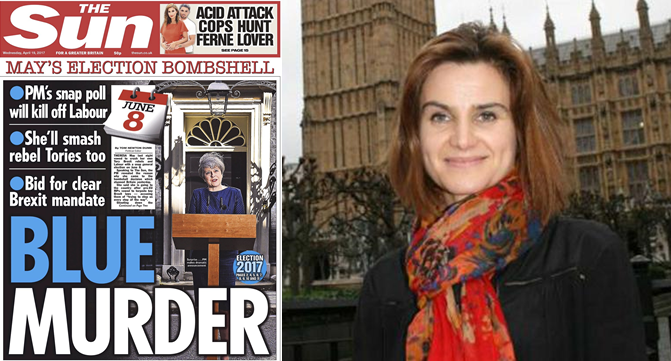
Humanity
So, anyway, I turned away from this Twitter-fed poison to read more of Alan Bennett’s diaries, covering the period 2005 to 2015. What surprised me was that they were more political than I expected. Several of his comments were remarkably prescient and he was plainly no fan of Tony Blair! But what strikes me above all – and is no surprise – is the sheer humanity of the man. His ear for a fine turn of phrase is legendary: the cadences, nuances and idiosyncrasies of the spoken language. But he also has a fine eye for character: moods, body language, real or suspected motives, strengths and human failings are all deftly portrayed, whether he’s writing about someone rich and famous or the lowliest of strangers he just happens to meet.
Bennett also displays a quiet, comfortable sense of place. He’s clearly very much a man of Britain in an unshowy, sort-of-patriotic way. There’s a sense of rootedness which is the antithesis of the hawkish, jingoistic variety espoused by the Mail and by the unhinged, irreconcilable EU-haters on the Tory back benches.

A Matter of Character
All of this brings us back to Theresa May and her character now on show. Check out both her speech in Downing Street on Tuesday and that in the House of Commons yesterday. It’s all “me”, “I” and such, displaying an autocratic nature that I’ve commented on in earlier posts. May is pushing the line that the election is about strengthening her negotiating position “in the national interest”. But the truth – that her decision to go to the country is all about cynical Tory Party advantage – easily belies that. Yvette Cooper got it exactly right when she called that out in the Commons debate.
Conventional wisdom is that the election result is a foregone conclusion: that may well turn out to be right. But I do have this to say to anyone who, like me, cares a lot about emphasising our common humanity. Firstly, whatever you do, vote – even though our first-past-the-post system may make it a wasted one: it’s moral authority we’re after here. Secondly, think very hard about what you can do to minimise the number of seats that the Conservatives win. I’m pleased to see that Gina Miller, the brave woman who forced May to act constitutionally with the Article 50 vote, is setting up a tactical voting unit to help those who want to avoid giving May even more hubris and the most damaging form of EU exit.
There’s too much hatred and not enough humanity afoot in the UK right now. And it’s not the fault of the “saboteurs”. On June 8th, think very carefully indeed about what you’re voting for.


